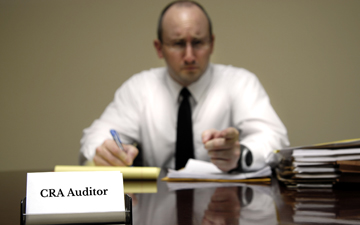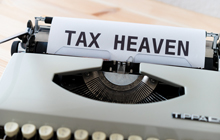Taxpayers Beware: CRA’s new tools for catching tax evasion, avoiding tax debt

As David J Rotfleisch explains, the most recent federal budget included plans to hold tax professionals accountable as well as notices of non-compliance
Introduction
 |
David J Rotfleisch, CPA, JD is the founding tax lawyer of Taxpage.com and Rotfleisch & Samulovitch P.C., a Toronto-based boutique tax law corporate law firm. |
On April 16th the Department of Finance released Budget 2024: Fairness for Every Generation. In addition to the new tax changes such as the controversial capital gains tax, the federal government is also attempting to increase methods available to uncover and punish those who engage in illegal tax activities.
New Enforcement Tools For Avoiding Tax Debts
The government is proposing to allow the Canada Revenue Agency to assess a person who receives property from a party other than the tax debtor for the debtor’s tax debt. The CRA would issue this form of assessment in cases where the purpose of the transfer of property is to avoid the imposition of joint and several, or solidary, liability.
The budget includes plans to hold tax professionals accountable for promoting tax debt avoidance planning using transactions to avoid payment of a tax debt. This proposal is in response to the scrutiny the CRA has faced the last few years for failing to catch and prosecute those cheating the tax system. Although the CRA has successfully uncovered and prosecuted smaller cases, Canada still loses between $5.3 and $7.3 billion each year in tax revenues each year from tax avoidance and evasion (according to Canadians for Tax Fairness).
The new tax debt avoidance penalties are proposed to be in the amount of 50% of the tax related to the avoidance transaction, and $100,000 plus the amount of consideration the planner is entitled to receive for planning the abusive arrangement.
Crypto-Asset Reporting Framework
Another tool being added to the toolbox for catching tax cheats is the Crypto-Asset Reporting Framework (“CARF”). This framework, which is developed and promoted by the Organisation for Economic Co-Operation and Development, will create new reporting requirements for crypto-asset service providers. The OECD proposal is aimed at reducing the anonymity of crypto-assets, allowing governments around the world to properly attribute income earned from crypto-assets to taxpayers.
Within the budget, Canada is proposing to require crypto-asset service providers to reveal information about each customer and each crypto-asset, including crypto exchanges, crypto-asset brokers, and crypto-asset ATM operators. The service providers will be required to collect and provide information a number of transactions, including: crypto-assets exchanged for fiat currency, crypto-assets exchanged for other crypto-assets, and the use of crypto-assets to purchase over $50,000 USD of goods or services.
New Enforcement Mechanism For Withholding Information
The CRA is also receiving a new measure to compel cooperation of taxpayers who attempt to withhold information. Currently, many taxpayers who wish to avoid taxes or reassessments from the CRA will delay providing information sought by the CRA for as long as possible. The CRA currently must seek a contempt order from a court, which can be a long and arduous process. The Budget will address this issue by empowering the CRA to issue a “Notice of Non-Compliance” to a taxpayer who has failed to provide information it requested. Those who ignore that notice could face a penalty of $50 for each day of non-compliance, up to a maximum of $25,000. The CRA also receives an extension to the normal reassessment period for the taxation year to which the Notice of Non-Compliance relates. This extension is equal to the length of time by which the Notice of Non-Compliance is outstanding.
If the CRA obtains a compliance order from a court to force a taxpayer to provide information, that taxpayer could face a penalty of 10 per cent of the aggregate tax payable if the tax owing in one taxation year exceeds $50,000. There will be a series of similar penalties which apply to other tax legislation, including: the Underused Housing Tax Act, Select Luxury Items Tax Act, and Excise Tax Act.
The new CARF framework will eventually serve to deanonymize the crypto-asset space. It is important to keep accurate records of dealings in crypto-assets so taxpayers can properly report their income each year. The new penalties available to the CRA will punish taxpayers who do not provide information on a timely basis. Having complete and accurate records of your crypto-asset dealings will allow you to provide the information requested by the CRA on a timely basis, minimizing the risk of becoming subject to a notice of non-compliance or a compliance order from the court.
David J Rotfleisch, CPA, JD is the founding tax lawyer of Taxpage.com and Rotfleisch & Samulovitch P.C., a Toronto-based boutique tax law corporate law firm and is a Certified Specialist in Taxation Law who has completed the CICA in-depth tax planning course. He appears regularly in print, radio and TV and blogs extensively.
With over 30 years of experience as both a lawyer and chartered professional accountant, he has helped start-up businesses, cryptocurrency traders, resident and non-resident business owners and corporations with their tax planning, with will and estate planning, voluntary disclosures and tax dispute resolution including tax audit representation and tax litigation. Visit www.Taxpage.com and email David at david@taxpage.com.
Read the original article in full on Taxpage. Author photo courtesy Rotfleisch & Samulovitch P.C. Title image: iStock (modified).










(0) Comments